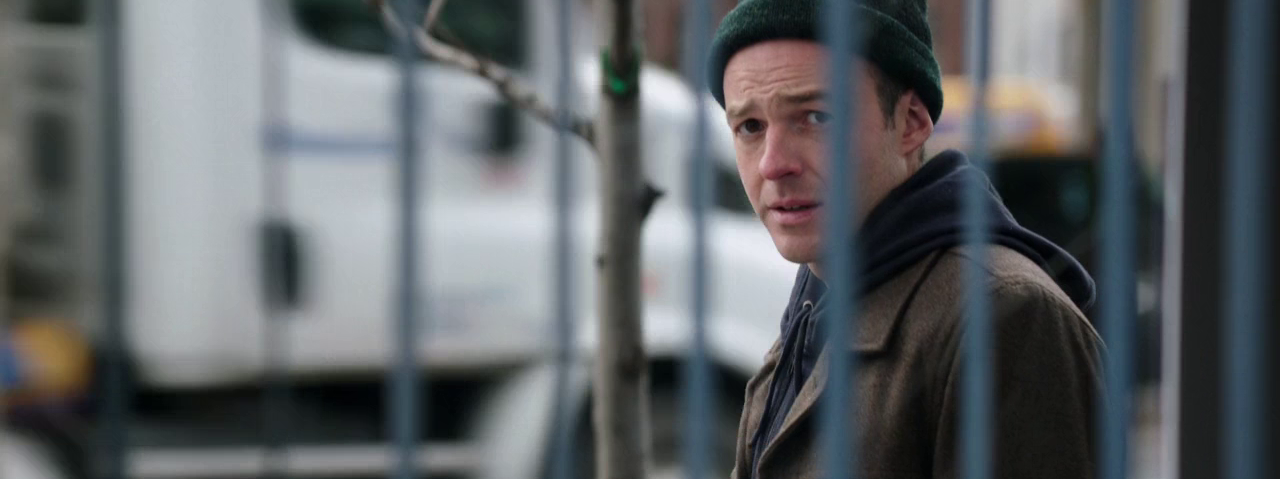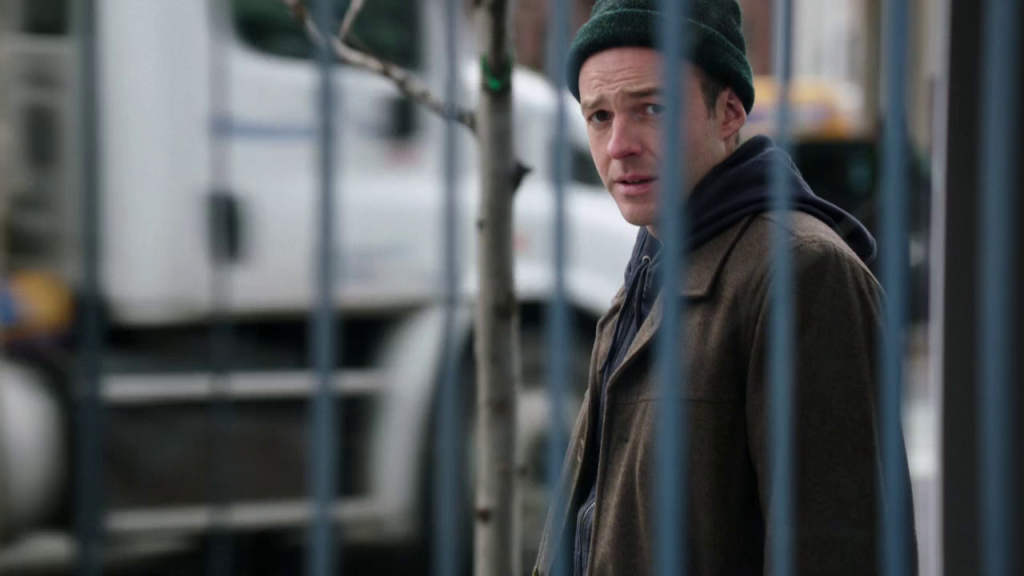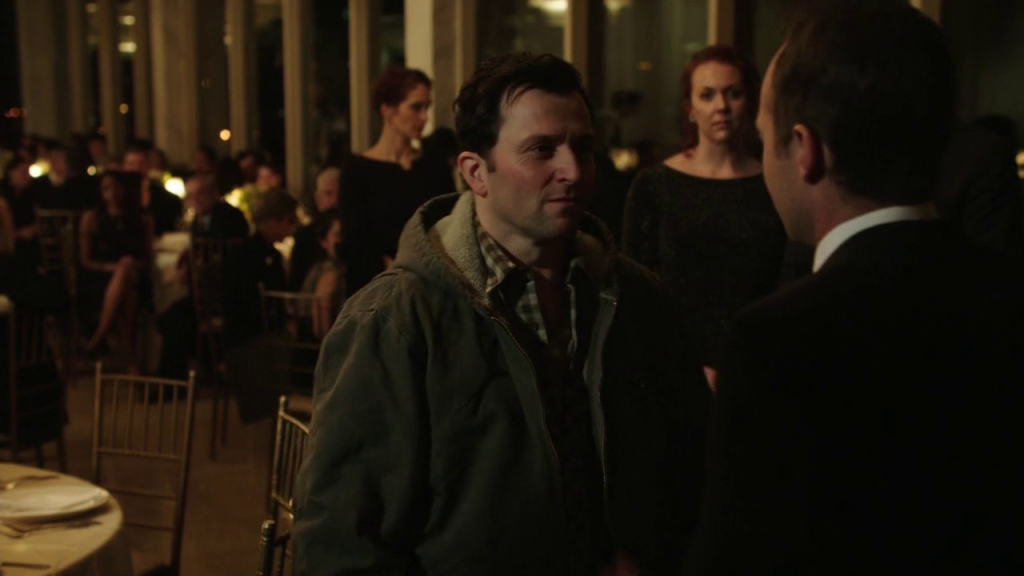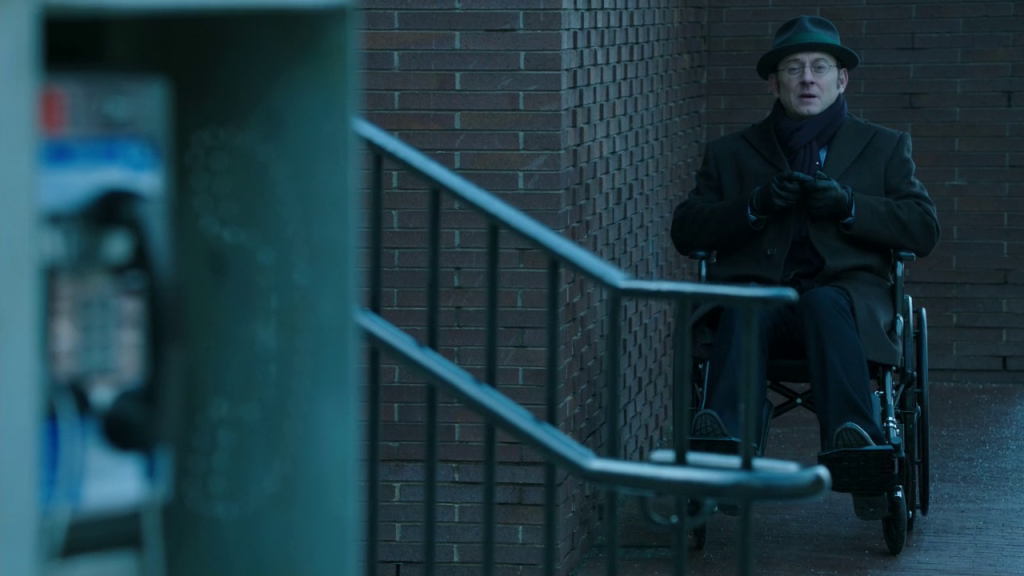When I saw that the name of this week’s Person of Interest was Karma, my first thought was, “Is the show going to use ‘Karma Police?!?’” It wouldn’t be the first or even second time that Person of Interest made use of a Radiohead song that I’m particularly fond of (they had previously made use of “I Might Be Wrong and Exit Music (For a Film)”), but sadly they never actually make use of the song. It actually feels a bit odd, since lines like “For a minute there I lost myself” or “I’ve given all I can. It’s not enough,” seem to be oddly appropriate given the subject matter. As it stands, Karma leaves me with a sense of unmet potential. This week’s number is a therapist, Dr. Shane Edwards, who specializes in dealing with victims of trauma. However, he is a victim of trauma himself, as his wife was murdered in their apartment eight years prior, and the episode juxtaposes Edwards’ attempts to overcome his prolonged grief via unorthodox methods with flashbacks of Finch’s actions following Nathan Ingram’s death. The problem lies in the fact that the flashbacks largely fail to surprise or strike an emotional chord, so all we are left with is the case-of-the-week element. Admittedly those elements are slightly above average for the show, but it feels as if Karma could have been much more.
It turns out the Dr. Edwards has not only been treating victims of trauma, but has also been framing those that have inflicted trauma upon his patients in order to ensure that they cannot escape justice. Reese uncovers this fact when Dr. Edwards frames a club owner who paralyzed one of his patients in a reckless driving incident while under the influence of narcotics by making it appear that he was attempting armed robbery of a bank. If that sounds like a slightly convoluted approach, that’s because it is. Apparently Edwards has been dishing out karmic justice for a while, as Finch finds evidence of seven other occasions where he framed people who were able to game the system. However, with Wyatt Morris, the man accused of killing Edwards’s wife, getting out of prison, Edwards has decided to ensure that Morris doesn’t stay out of prison for long. The biggest strength of the episode is that Morris’ guilt remains ambiguous throughout the entire episode. Even the team is split on the subject, with Fusco being convinced that Morris committed the murder, and Finch remaining unconvinced by the largely circumstantial evidence. The nebulous morality of the scenario is what helps elevate this storyline, but, despite the lack of a clear answer, the ending of the episode ends up playing out in a rather predictable manner.
Finch’s flashbacks were a bit of a letdown, as the only thing that really happens in them is that he threatens Alicia Corwin with a car bomb. It was nice seeing Alicia Marvel again, but, unless Person of Interest plans on returning to this, I really don’t see the point of this plot thread. Michael Emerson doesn’t really have anyone to work off of, as his interactions with the Machine are rather limited, and his only dialogue with Corwin occurs through a voice scrambler. The closest that this plot thread came to working was when the Machine continuously tried calling Finch, because it had flagged him as a perpetrator, and, in doing so, caused him to recognize what he would become through his current course of action. Reese also confronts his experiences with revenge during his sessions with Dr. Campbell, even going so far as to open up a bit about Jessica. It feels like it has been a while since the show last brought up the impact that her death had on John, and it might be interesting to see where they’re going with that in the upcoming weeks.
Before I wrap up, a few Notes and Nitpicks:
- Strictly speaking, there wasn’t really a murderer involved in Dr. Edwards’s plot. It’s a little odd to see the Machine send them on a case where the perpetrator wouldn’t be committing murder, but rather suicide.
- The plot dump delivered by Fusco and Reese at the opening of the episode is atrocious. It is easily the most artificial moment in the entire episode, and it is further hampered by the fact that both characters obviously already know the information that they are relaying to one another.
- British actor Patrick Kennedy plays Dr. Edwards. He has previously appeared in Atonement, Downton Abbey, and Boardwalk Empire, and he will have a role in the upcoming Ian McKellen film, Mr. Holmes.
- The fact that Karma makes no references to Samaritan, Shaw, Root, or the Brotherhood really adds to the sense that it could be placed anywhere in almost any season. The only thing that ties it to this season is Reese’s job and his psychiatrist.
- For those who are not familiar with the Radiohead song “Karma Police,” the music video can be found here.
Karma really doesn’t feel like it is much more than the sum of it’s parts. It might even be less than the some of its parts. The idea of getting a glimpse of Finch when he was at his most broken sounds like it could be very interesting and emotionally wrenching, but in practice it doesn’t fully succeed at being either. Ultimately, Karma can’t help but feel like a disappointment when compared to the promising nature of its premise. It is still a good episode, but not as good as it should be.







Add comment